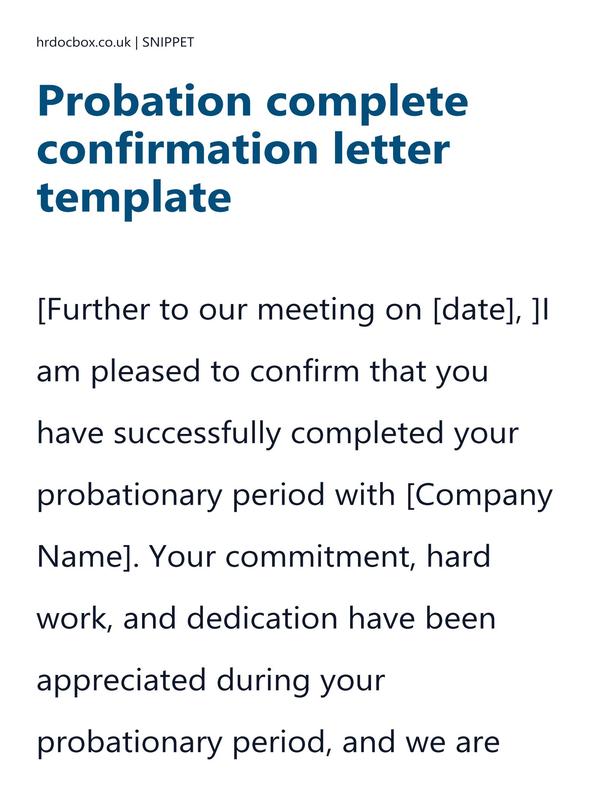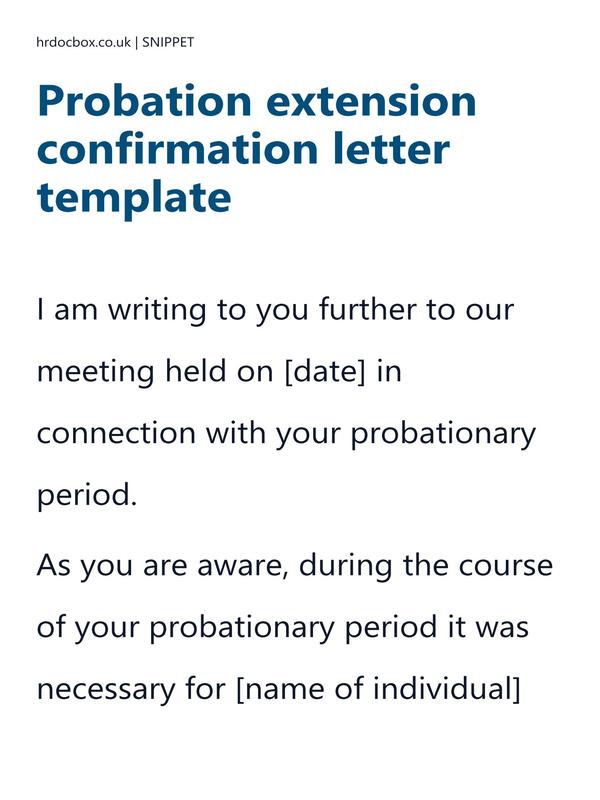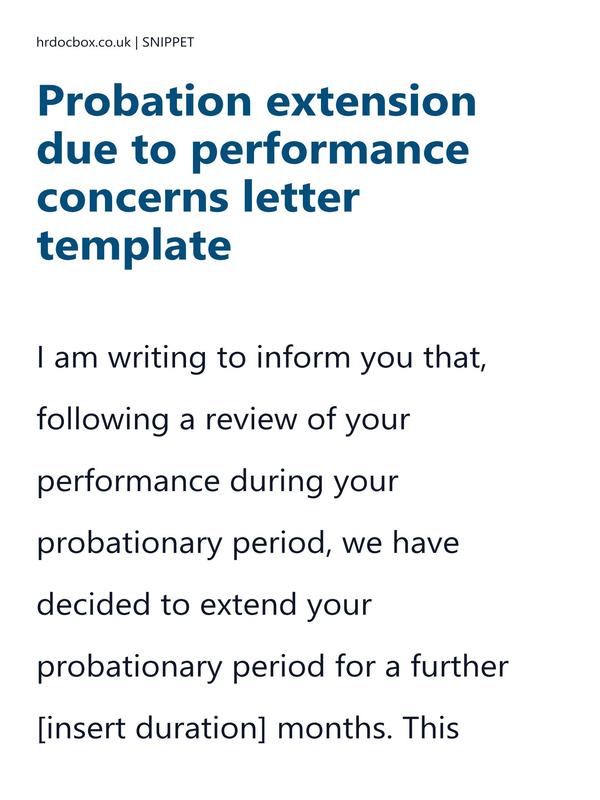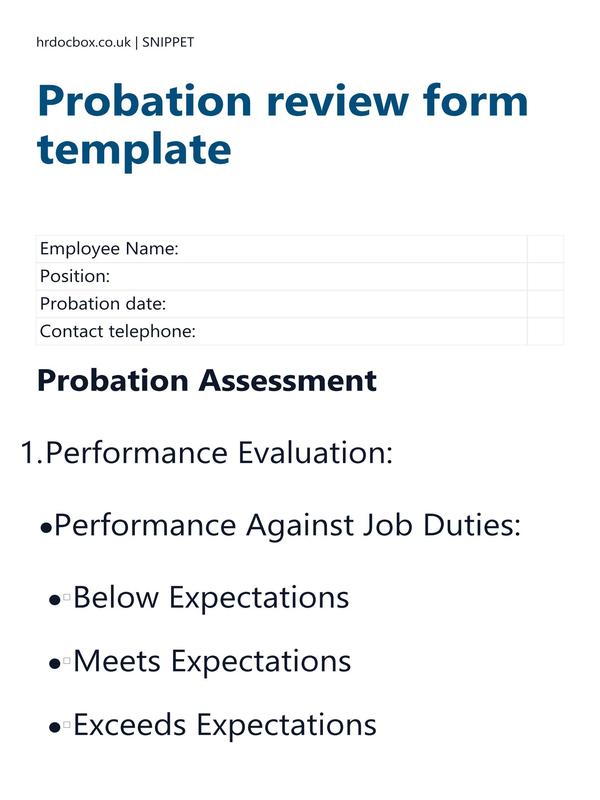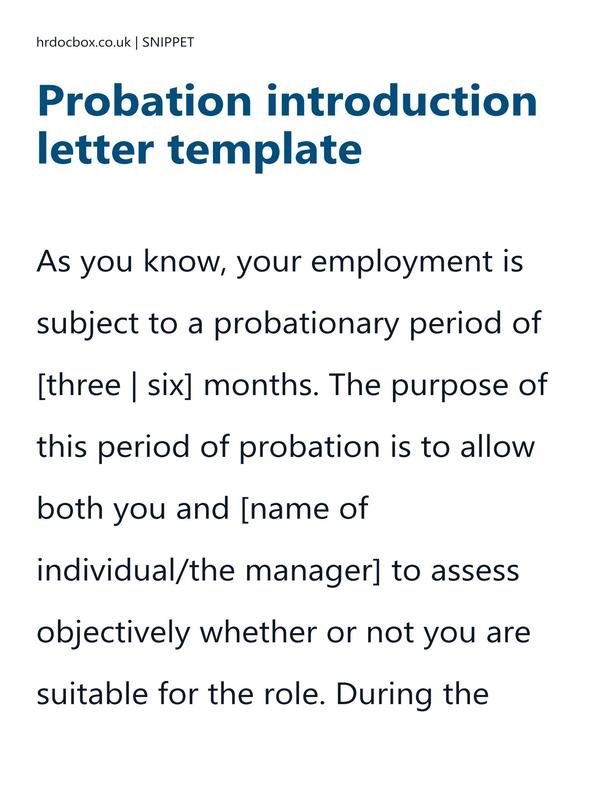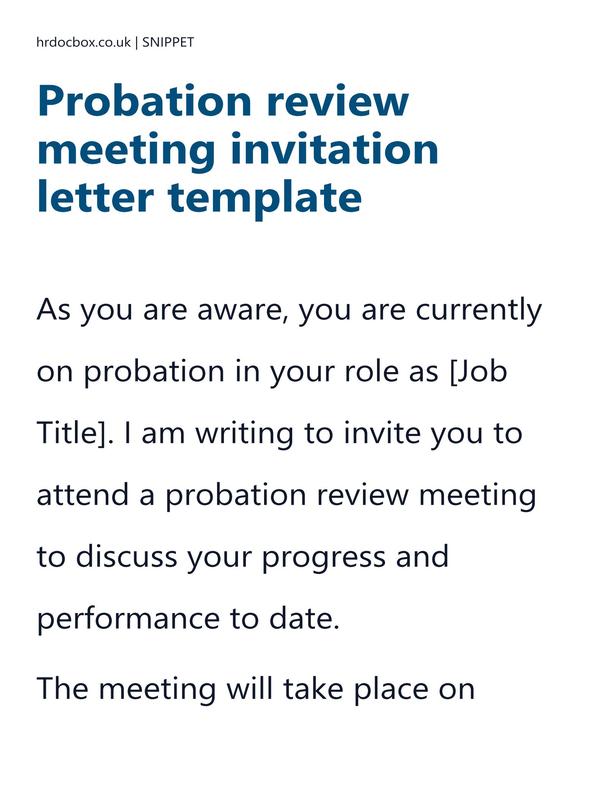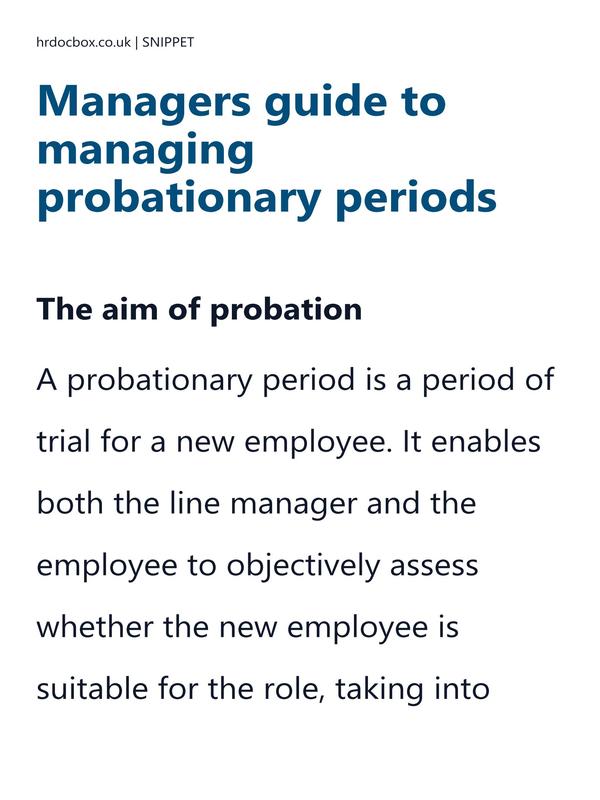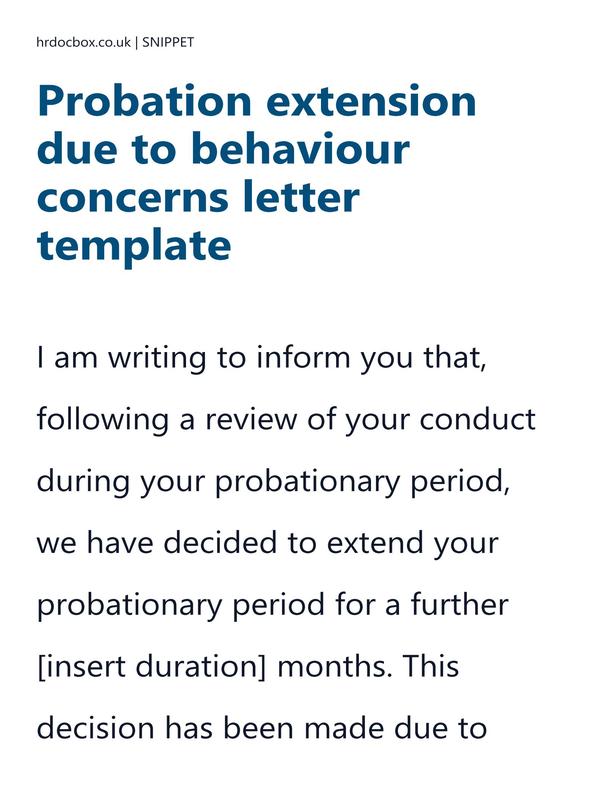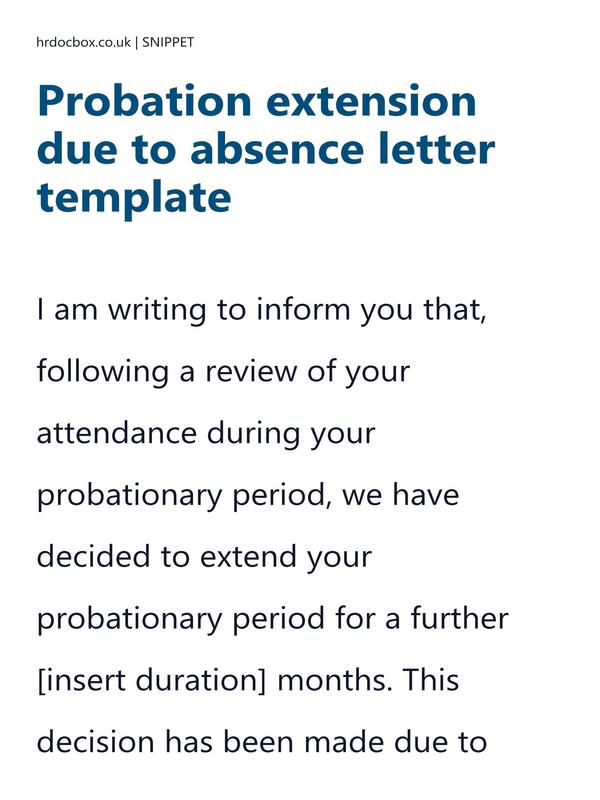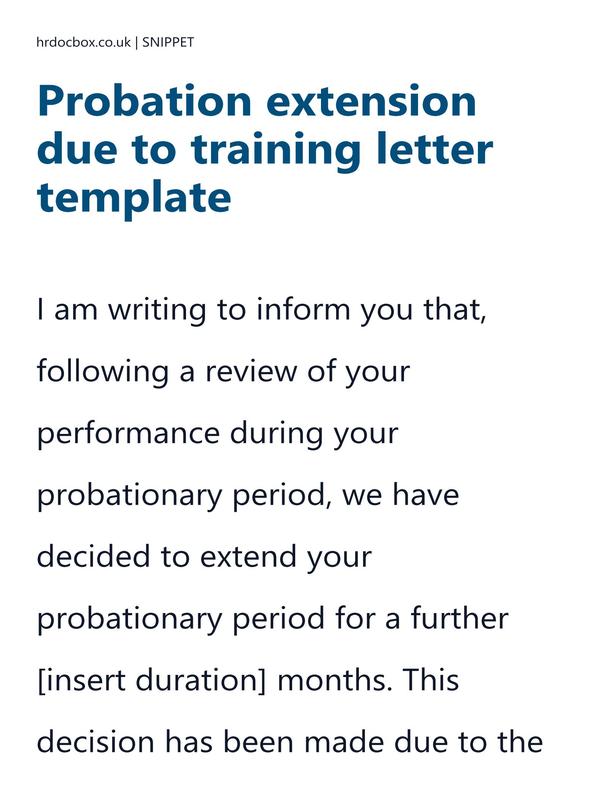Probation templates toolkit
Our Probation Templates Toolkit streamlines probation management, providing convenient templates for effective evaluation and support.
Our toolkit includes a range of templates that are designed to simplify the process of managing probationary periods, save you time and effort, and ensure compliance with all relevant employment legislation. From creating probationary period letters to conducting probationary reviews and extending probationary periods, our templates cover all the necessary documents required to manage probationary periods effectively.
- Includes 12 months' access to 12 Probation templates, with all updates to the Probation templates toolkit provided free of charge and notified to you.
- UK-specific accuracy.
- Instantly download templates as Word / PDF / plain text, or send by email.
- These Probation templates toolkit will SAVE you up to 9 hours drafting & research, save you money, and reduce your risk.
Probation
A probation period, also known as a probationary period, is a specified timeframe at the beginning of employment during which both the employer and the new employee have the opportunity to assess each other and determine if the role is a good fit. It's essentially a trial period designed to evaluate the employee's performance, behaviour, and suitability for the position, as well as to provide the employee with an opportunity to evaluate the company culture and job responsibilities.
Key aspects of a probation period typically include:
-
Duration: Probation periods can vary in length but commonly last anywhere from 30 to 90 days, although they can be longer in some cases.
-
Performance Evaluation: During the probation period, the employee's performance is closely monitored and evaluated by their supervisor or manager. This evaluation may include feedback on job performance, adherence to company policies, and interactions with coworkers and clients.
-
Training and Support: Employers may provide additional training or support to help the new employee succeed during the probationary period. This could include additional coaching, mentoring, or access to resources to enhance their skills and knowledge.
-
Termination: If the employee's performance or conduct during the probation period is unsatisfactory, the employer reserves the right to terminate the employment without notice or severance pay. Similarly, the employee may choose to resign if they feel the position is not a good fit for them.
-
Confirmation or Extension: At the end of the probation period, the employer will typically decide whether to confirm the employee's permanent status with the company, extend the probation period, or terminate the employment. If the employee's performance meets expectations, they may be confirmed as a permanent employee and become eligible for benefits and other perks offered by the company.
Probation periods provide both parties with a degree of flexibility and protection during the early stages of employment, allowing them to make informed decisions about the future of the working relationship.
Probation templates are essential for managing a low-risk, compliant Probation process.
Compliance
Compliance
-
Probation periods are typically used by employers to assess the suitability of a new employee during the initial stages of their employment.
-
Employers are not legally required to have a probationary period, but if they do, it should be clearly stated in the employee's contract of employment.
-
Probation periods should be reasonable and appropriate for the role and should be designed to enable the employer to assess the employee's performance and suitability for the role.
-
Employers should provide clear guidance to the employee on the objectives and expectations of the probationary period, including any specific targets or goals that they must meet.
-
Employers should conduct regular performance reviews during the probationary period and provide the employee with feedback on their progress.
-
Employers should ensure that any decision to extend or terminate a probationary period is based on objective performance criteria, and not on discriminatory grounds such as age, gender, or disability.
-
Employers should ensure that employees on probation receive the same employment rights and benefits as other employees, such as sick pay and annual leave.
It is important for employers to have clear and fair probationary periods in place to assess the suitability of new employees and to protect both themselves and their employees.
Probation workflow
Probation workflow
Here we show you which resources to use to effectively support a probationary period, taking into account the different decisions and directions that are likely / possible.
Following this flowchart will ensure that you factor in all eventualities, follow legal / code of conduct or best practice processes, communicate effectively, and reduce the risk of things going wrong.
Frequently Asked Questions about Probation templates
Frequently Asked Questions about Probation templates
-
Can small businesses use these Probation templates?
Yes. The Probation templates in this toolkit are designed to be flexible and suitable for organisations of all sizes, including small businesses and charities. They follow UK employment law best practice, so even if you don't have an in-house HR team, you can confidently manage Probation processes and issues.
-
Are these Probation templates up to date for UK law in 2026?
Absolutely. All templates are drafted with the latest ACAS guidance and UK employment legislation in mind. We review and update them regularly, so you can be confident they remain compliant.
-
What types of Probation letters and documents are included?
Every toolkit includes a complete set of editable templates, supporting documents, and manager guidance designed to save time and ensure compliance.
-
How will this help me as an HR manager or business owner?
Purchasing the toolkit saves you hours of drafting time and reduces the risk of legal mistakes. Instead of starting from scratch, you'll have clear, professional templates that you can adapt to your business.
-
Do I get instant access to the templates?
Yes. Once purchased, you'll be able to download the Probation toolkit instantly. The templates are provided in editable Word or Excel format so you can customise them easily, and PDF format for easy sharing.
-
Can I preview a sample Probation template before buying?
We provide free examples of our templates here. This gives you a sense of the quality and layout before you commit to purchasing the full toolkit.
-
What if I need a full HR toolkit, not just Probation templates?
If you're looking for broader support, we also offer library bundles that include Probation templates along with absence, grievance, and other HR policies. These may be more cost-effective if you need a complete HR library.
-
Why should I use these templates, and not AI to generate them?
The risk of using free AI-generated templates 'without review' includes your legal exposure, missing context, and no awareness of the wider process. Purchasing from us mitigates that risk.


